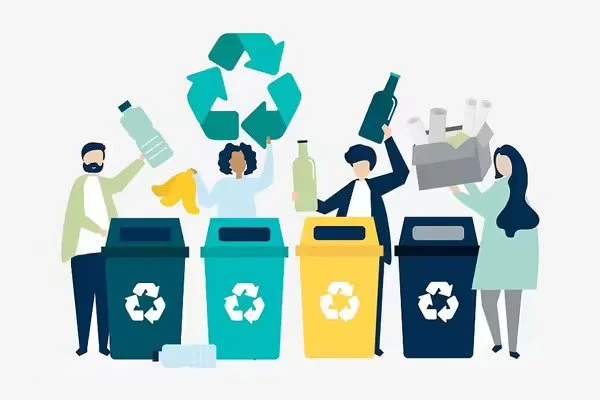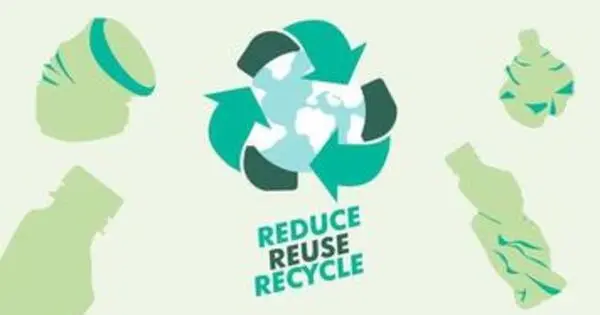Reducing plastic waste does require a shift in cultural attitudes and behaviors towards plastic consumption. Plastic waste is a significant environmental problem that is caused by the excessive and unnecessary use of single-use plastic items, such as disposable bags, straws, and packaging materials. To combat this issue, individuals, businesses, and governments must work together to change the way we produce, use, and dispose of plastic.
This can include implementing policies and programs that encourage the use of reusable products, recycling, and proper waste management, and reducing the amount of single-use plastic produced in the first place. Additionally, education and awareness campaigns can play a key role in raising awareness of the environmental impact of plastic waste and encouraging people to make more sustainable choices.
Plastic waste is regarded as one of the most serious environmental issues of our time. IASS researchers polled German consumers about their use of plastic packaging. According to their findings, fundamental changes in infrastructure and lifestyle, as well as cultural and economic transformation processes, are required to make zero-waste shopping the norm.
Our findings indicate that consumers must currently exert considerable effort and knowledge in order to avoid plastic packaging. We will need to change the relevant infrastructures, economic incentives, and political framework conditions if we want to make low-waste goods and goods without single-use plastic packaging the cheapest and most convenient option.
Katharina Beyerl
Reduced packaging waste is important to 96 percent of the German population. Nonetheless, private end consumption of packaging in Germany has been steadily increasing since 2009. The amount of plastic packaging waste generated by end users in Germany has more than doubled since 1997, reaching 3.2 million tons in 2018. Packaging consumption in Germany was 228 kilograms per capita, significantly higher than the European average of 174 kilograms per capita.
“Recycling only treats the symptoms of the plastic crisis and does not address the root cause, waste generation itself. We wanted to learn more about the barriers that prevent individuals in Germany from reducing their everyday consumption of plastic packaging for food and beverages. For our research project, a total of 40 participants contributed to discussions in four focus groups,” explains Jasmin Wiefek, lead author of the study.

In their analysis of the discussions, the researchers identified twelve barriers to reducing plastic packaging consumption:
- Shopping habits: Participants in the focus groups primarily shop at supermarkets or discounters rather than markets or zero-waste stores. The discussion also revealed that the majority of participants do not bring their own bags or containers to the grocery store. Processed and packaged foods are widely consumed.
- Lack of knowledge: The researchers discovered that participants were frequently unsure which types of packaging are more environmentally friendly than others.
- Hygiene: Participants expressed concerns about the hygienic properties of freely accessible displays of unpacked goods, the use of self-brought packaging, and long-term reusable packaging options in general during discussions.
- Priorities: Several participants described how their efforts to use less plastic packaging clashed with other daily priorities. One example given was that parents do not want their children to carry heavy backpacks, so they prefer to use plastic bottles instead of glass bottles.
- Diffusion of responsibility: According to the participants, both individuals and industry bear responsibility for resolving the “plastic problem”: on the one hand, because industry is to blame for the fact that so many products are packaged in plastic, it must offer solutions. They did, however, emphasize that consumers should shop more carefully and avoid products in plastic packaging.
- Time and time structures: Another significant barrier to plastic-free shopping is time. Accessing zero-waste shops and markets would take more time for most people due to the travel distances involved. Participants pointed out that shopping would take longer if they filled their own containers with food and then had to clean the containers. They also mentioned that preparing unprocessed foods takes longer.
- Consumer Culture: Participants stated that the availability of a “wide range of products” was not important to them when shopping. Many people, however, emphasized the importance of being able to find specific products in stores. This translates into an indirect demand for a wide range of products, which zero-waste / low-plastic retailers find difficult to implement.
“Our findings indicate that consumers must currently exert considerable effort and knowledge in order to avoid plastic packaging. We will need to change the relevant infrastructures, economic incentives, and political framework conditions if we want to make low-waste goods and goods without single-use plastic packaging the cheapest and most convenient option” Katharina Beyerl, project leader, and co-author, explains. Simply asking consumers to shop exclusively in zero-waste stores will not achieve the goal of reducing the use of plastic packaging. Instead, fundamental changes in societal structures and lifestyles, as well as a cultural shift, are required.





